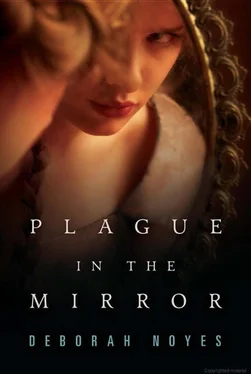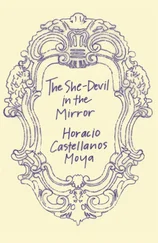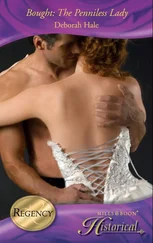May slips back into her own clothes, leaving the blue dress in a heap at her feet, and at Cristofana’s nod steps through without a word, without looking back, onto a hidden archway on a modern street full of buzzing mopeds and schoolchildren in uniform, a street blessedly free of Cristofana.
When May finally works her way through Liam’s barrage of texts and finds him, in the shade of a stone loggia in an outdoor café near the apartment, drinking a limonata, she hugs him over the iron railing, hard.
Caught between sitting and standing, Li is pretty obviously mystified. When she pulls away, he straightens to his full height, letting his hands fall from her shoulders, but one floats up again automatically. Long fingers brush her cheek. “Are you crying ? Shit, May. What happened? Why didn’t you answer? I texted you like a million times….”
She casts a greedy eye over the street: parked cars, the still facade of Cinema Edison. “Let’s go?”
He walks around the railing to her. “I thought I saw you go right past me in the piazza, but you were in a mad hurry—”
“You saw me? How did I look?”
“You looked — is this a trick question? — distracted. Busy.” He eyes her up and down. “Anyway, you weren’t dressed like you. I only thought it was, I guess. But I figured you’d text me when you were ready to go….”
They’re standing on the sidewalk, in the shade of an awning on the corner of Via degli Strozzi and Via Pellicceria, squared in by four hunkering churches. As they start walking down Pellicceria, past Banca Nazionale del Lavoro, May remembers with relief the odd little building with the bright-lilac roof that Gwen explained was a betting booth. Already men and women are milling around it, consulting their papers for upcoming dog and horse races. Next door is the post office, which she also remembers passing this morning, with the same old men out front all meticulously dressed in their suits and polyester vests, rattling their newspapers, arguing politics and racing odds. All familiar. Good.
She touches the nearest wall — smooth, real, now — tears streaking her face. “I’m losing it, Li. What time is it?”
He shrugs, glancing at her leg, his eyes wide with worry. “I dunno. Ten thirty, maybe. You’re shaking.” He lifts his fingers to wipe the damp from her face again, almost reflexively. “You’re not losing it. You just got lost.”
“You have no idea what an understatement that is.” She feels too stupid to look at him, but he lifts her chin with his thumb.
“Hey, it happens. Didn’t you bring a guidebook? You didn’t, did you? I knew it. Did you even bring your phone? You weren’t gone long, but you always text back, so I got… worried.”
Ten thirty. She’d left the apartment just after nine. How could she have been through all that — Cristofana and the river and the man in the artist’s workshop — in the time it took to get to and from Mercato Nuovo? Impossible.
It worries her, how calm she feels now that it’s over, how accepting. Does madness come over you that quickly, like a wool blanket thrown over your head… and you just learn to live in the dark? This calm adaptability is almost worse than whatever’s causing these weird delusions. She thinks of her guidebook and phone in her bag and smiles. She thinks of the man’s amber eyes looking right into her, the feeling of his warm, capable hands on her skin.
“You hurt your leg. You OK?”
May nods. She is. Now. The bandage, though, is mysteriously gone, and a scab’s already forming.
“Let’s get out of here, huh? This city’s like a maze. It’s starting to get to me. And I’m tired of all these people.”
She puts out her arm, and he links his through, looking away. When he doesn’t ask it out loud — what happened? — May is glad. She can concentrate on breathing. On taking one step and another. Liam’s so easy, so steady. Always has been.
They find the depot and don’t say much, waiting to board the Number 7 bus to Fiesole — a village perched on a hill just north of Florence — along with other tourists and a few early-bird locals lugging shopping bags.
Gwen said it was a short ride past beautiful villas, only a half hour or so to the town square. If it wasn’t too hot and they wanted to walk awhile, they could get out at the hamlet halfway between, she’d said, and enjoy the green hills. They do get out, peeking in first at the shadowy convent and church in tiny San Domenico.
They’re breathless on the steep walk to Fiesole, May trying not to limp, and she can’t keep her thoughts from racing or her mind on the scenery, but it’s turned into a beautiful day, and that helps. Liam was right that she belongs where it’s green. Decadent Old Florence might be Gwen’s kind of place and her mother’s, but to May (and Liam, she’s getting), it’s like rich food: you can only eat so much before it makes you sick.
They enter the main square in Fiesole, park themselves on a bench, and stare down at the red-tiled rooftops of Florence, the cypress-specked hills of Mugello. There’s a real breeze up here. The air smells clean, and swifts sweep past, diving in the open air high ahead. The two of them sit in comfortable silence: May processing the morning, Liam probably wondering what got her so upset. She isn’t one to cry or panic, even in a crisis, and May can’t remember the last time she’s cried in front of anyone, least of all Li. He took it in stride, though, and she’s grateful for that.
“Should we go to the Archaeological Museum?” he asks finally, his voice jarring in the silence. “Gwen’ll kill us if we don’t.”
“I’m starved.”
“Yeah, me too. Let’s do lunch first and then walk.”
The ancient Romans built a theater and baths up here, and according to the guidebook, here they are still, crumbling under the Tuscan skies. The ruins are just off the square, partly enclosed by cypress trees with descending hills visible beyond.
She and Liam are the only people inside the open park, and the hush is huge. There’s something eerie and comforting about the orderly rows and stacks of stone, an outline of vanished lives.
“It’s crazy”— Liam produces a thin blanket from his backpack, spreading it carefully, reading her mind —“that these things were built more than a thousand years before the Renaissance.”
May gazes off at the ruins while Li finishes unpacking. The ragged rows are humbling, in a way. A sign on the way in said that there were Etruscan ruins here, too, dating back several hundred years before the Romans.
Cheese. Sliced apples. Olives. Crusty bread. “This here’s all very Martha Stewart of you, Li. I’m impressed.”
“You like?”
“I like,” she says, tearing off a hunk of break to dab in the oil from the olives, then twisting the bread in her molars, chewing thoughtfully. “Do you ever think about how the past is always with us?”
“No.”
“I’m serious,” she says, swallowing. “I’m talking about my parents, the life we had as little kids. But way back before all that, too, before we were born. A bunch of people in togas walked around these ruins once, naming constellations and telling stories about Zeus and Hera.”
“Who?”
She glares up at him again, and, again, he smiles. Of course he knows who Zeus and Hera are. Liam knows everything, probably. They’re both academics’ kids, spoon-fed this stuff, myths and histories, since before they could walk. It’s only with grown-up life looming just out of the frame that May is grasping how little she knows, how none of it seems to add up.
“You’re philosophical today.”
May rips off another hunk of bread. “I’ve just been thinking how you can’t stop it. The future’s always coming at you like a train, and you can’t see it to get out of the way.”
Читать дальше












